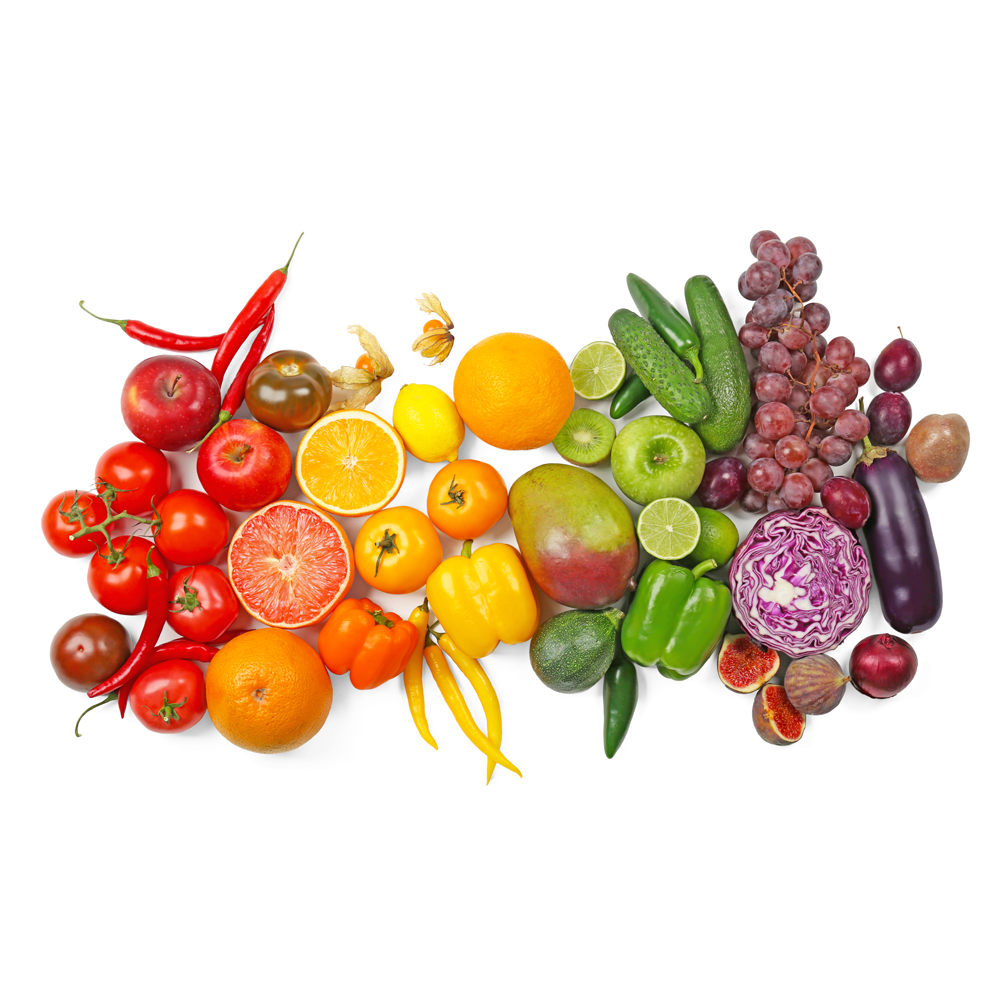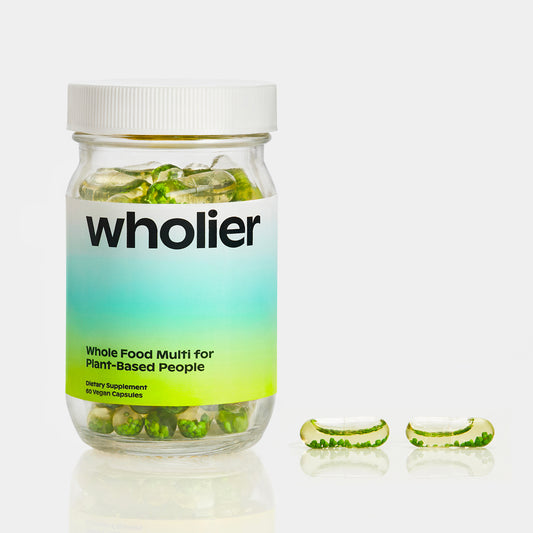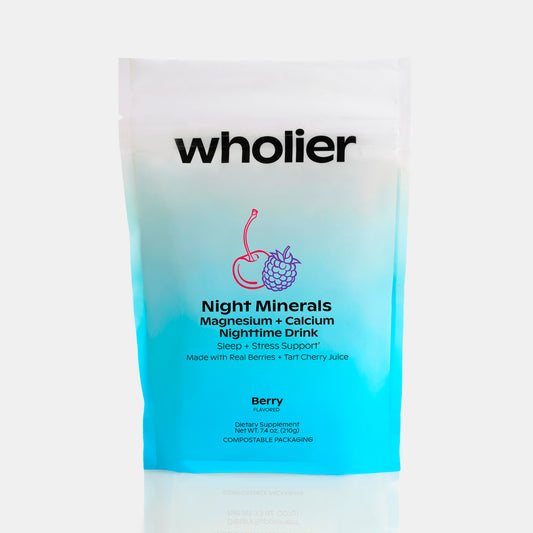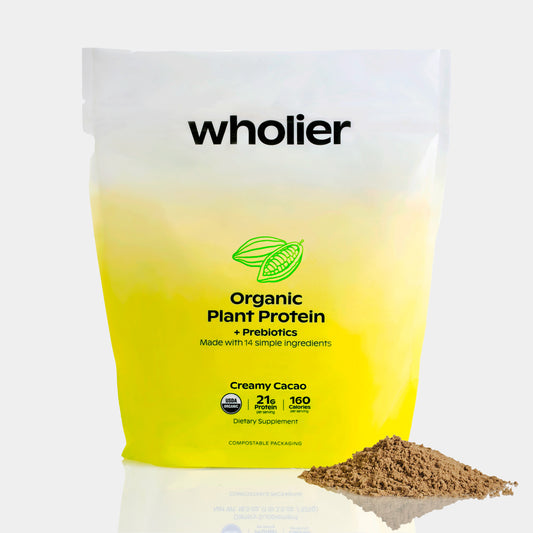
The Essential Guide to Phytonutrients and How They Benefit Your Health
Welcome to the world of phytonutrients! If you're not familiar with these plant-based compounds, prepare to be amazed. Phytonutrients (or phytochemicals) are natural chemicals found in fruits and vegetables that offer a host of health benefits. Let’s dive into what they are, the different types, where you can find them, and why eating a variety of produce is essential for optimal health.
What Are Phytonutrients?
Phytonutrient literally means "plant nutrient," but it's so much more than that. These naturally occurring compounds help protect plants from environmental stressors like UV radiation and insect damage.(1) And when we eat foods rich in phytonutrients – like colorful fruits and veggies—we reap those same protective benefits.
There are thousands of unique phytochemicals found in nature – and scientists have only scratched the surface on understanding all their potential health effects.(2) Some common categories include carotenoids, flavonoids, polyphenols and sulfur-containing compounds. Each type offers its own set of perks for your body.
- Carotenoids: Think orange-hued produce like carrots or pumpkin. Carotenoids are pigments that give fruits and vegetables their bright colors. Some well-known carotenoids include beta-carotene (found in carrots), lycopene (in tomatoes), and astaxanthin (in salmon). These compounds act as antioxidants, protecting cells from damage caused by free radicals.(3)
- Flavonoids: You'll find flavonoids in a variety of plant-based foods such as berries, citrus fruits, tea, dark chocolate and wine. Flavonoids also have antioxidant properties but can also help reduce inflammation, which is thought to play a role in the development of many chronic diseases.(4)
- Polyphenols: Polyphenols exist abundantly throughout plants including grapes for example. Another group of powerful antioxidants found mainly in plant-derived foods like nuts, seeds , cocoa bean products or whole grains. They too may improve endothelial function leading to better heart health along with various other benefits.(5)
- Sulfur-Containing Compounds: Cruciferous Vegetables such as broccoli contain sulfur-containing compounds called sulforaphane making them an all-star food choice when it comes to nutrients. These types of phytonutrients often provide strong anti-cancer effects because they stimulate enzymes involved with detoxification pathways within our body.(6)
What Are The Health Benefits Of Phytonutrients?
Now that we've covered the different types, let's discuss their specific phytonutrient benefits for your health.
- Reduced Risk of Chronic Diseases: Numerous studies have shown a correlation between higher consumption of fruits and vegetables rich in phytonutrients and reduced risk for chronic diseases such as heart disease, cancer, diabetes ,and neurodegenerative disorders.(7,8) This is thought to be due largely to their antioxidant properties which help reduce inflammation throughout our body.
- Improved Gut Health: Certain polyphenols found in plant-based foods are known prebiotics that can improve gut bacteria diversity.(9) They feed the good bacteria within your microbiome leading to better digestion overall along with improved immune function.
- Enhanced Cognitive Function: Studies suggest flavonoids play an important role when it comes to cognitive improvement by protecting neurons against oxidative stress or even improving blood flow.(10) Some research also suggests sulforaphane may protect brain cells from damage caused by Alzheimer’s disease.(11)
- Better Skin Protection: Carotenoids (remember the orange-hued produce?) seem especially beneficial for skin protection since they act like natural sunscreens helping prevent UV radiation cause cell injury. A study involving women who ate high carotenoid diets found they had less skin damage and wrinkles than those who consumed fewer carotenoids.(12)
- Improved Cardiovascular Health: As mentioned earlier, many phytonutrients like polyphenols or flavonoids have been shown to improve endothelial function which can help reduce the risk of heart disease.(13) Additionally, some research suggests that a diet rich in carotenoids may lower cholesterol levels and decrease blood pressure.(14)
Why Is It Important to Eat a Variety of Fruits and Vegetables?
Now you might be wondering: If each type of phytochemical has its own benefits, should I focus on eating only one specific category? The answer is no! Eating a variety of colorful fruits and vegetables is key.
Different types contain different combinations – and amounts – of these important compounds. For example tomatoes are high lycopene but low in beta-carotene while spinach contains both.. So by consuming an array of produce colors throughout your weekly meals ensures maximal intake diversity leading to greater health outcomes. You can get creative with how you prepare them – raw, roasted, cooked – to keep things interesting when it comes mealtime.
Phytonutrients offer numerous health benefits from reduced chronic disease risks such as cancer or cardiovascular disorders along with improved gut health, cognitive function, skin protection and more. By including a variety of fruits and vegetables in your diet on a regular basis you can maximize your intake of these beneficial compounds.
So next time you're at the grocery store or farmer's market, be sure to choose an array of colorful produce items! Not only will they add vibrant color to your plate but also provide numerous nutrients that are essential for optimal health.
Sources:
(1) D'Archivio, M., Filesi, C., Di Benedetto, R., Gargiulo,R., Giovannini,C. and Masella ,R.(2007). Polyphenols,Nutrition And Health: State Of The Art.Proceedings of the Nutrition Society.
(2) Heber,D.(2010) Phytochemicals And Their Role In Human Health.Journal of Evidence-Based Complementary & Alternative Medicine.
(3) Lee,J.and Koo,N (2020). Modulation Of Gut Microbiota As A Strategy For The Prevention Or Treatment Of Colon Cancer.Phytomedicine
(4) Mellor,D.D.et al(2018)Polyphenols:Metabolism And Metabolites.Wiley Online Library
(5) Pandey,K.B.&Rizvi,S.I,(2009),Plant polyphenols as dietary antioxidants in human health and disease,Oxidative Medicine and Cellular Longevity
(6) Sánchez-Moreno,C et al(1999),Contribution of Oranges to Dietary Antioxidant Intakes,LWT-Food Science anf Technology
(7) Wang, X., Ouyang,Y., Liu,J.et al.(2020) Fruit and vegetable consumption and mortality from all causes,cancer,and cardiovascular disease: systematic review and dose-response meta-analysis of prospective cohort studies.BMJ
(8) Wu,X et al(2004), Dietary flavonoid intake and risk of coronary heart disease in male smokers,Eur J Clin Nutr.
(9) Yamakoshi ,J .et.al (1996). Carotenoids And Their Metabolites In Human Health.Proceedings Of The Japan Academy Series B Physical & Biological Sciences.
(10) Spencer, J.P.E., Vafeiadou,K & Williams,R.J.(2012).Flavonoids And Cognition: The Molecular Mechanisms Underlying Their Behavioral Effects.Flavonoids In The Living System.
(11) Tarozzi ,A et al(2020) Sulforaphane as a potential protective phytochemical against neurodegenerative diseases,Oxidative Medicine and Cellular Longevity
(12) Stahl,W.et.al (2006), Dietary tomato paste protects against ultraviolet light-induced erythema in humans,J Nutr .
(13) Taubert,D.et.al (2007)Effects of Low Habitual Cocoa Intake on Blood Pressure and Bioactive Nitric Oxide:A Randomized Controlled TrialJAMA






